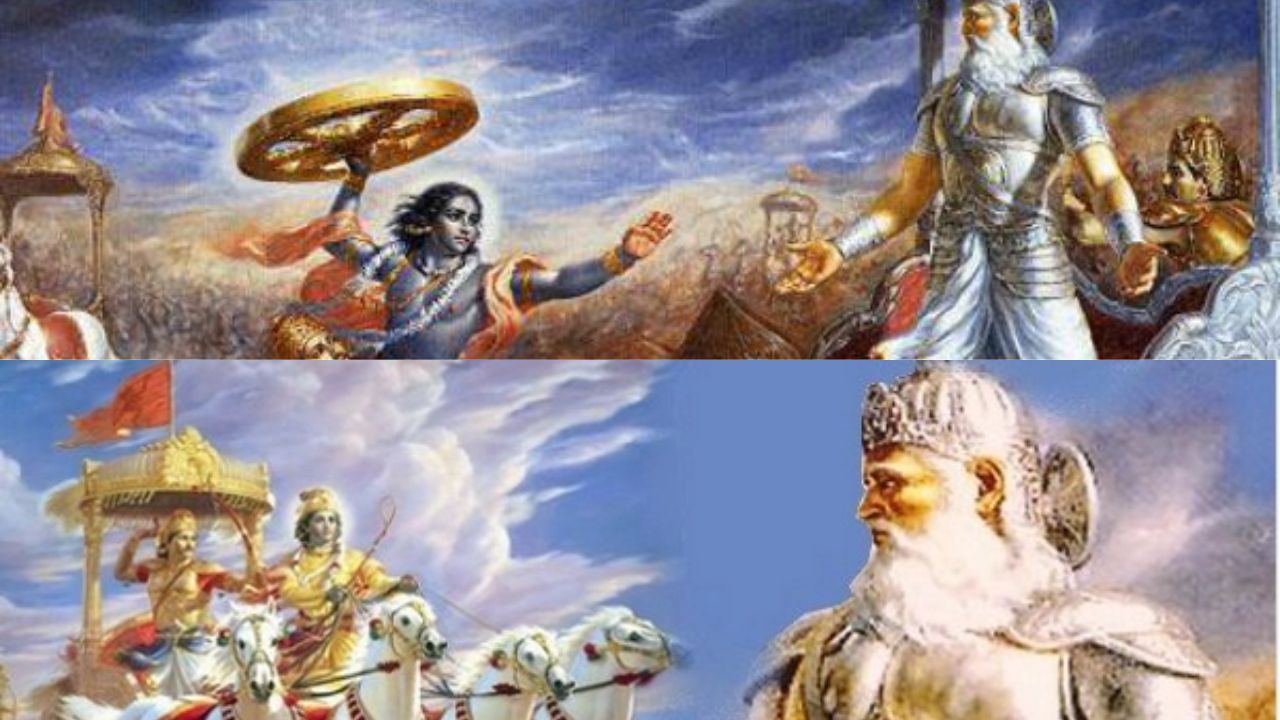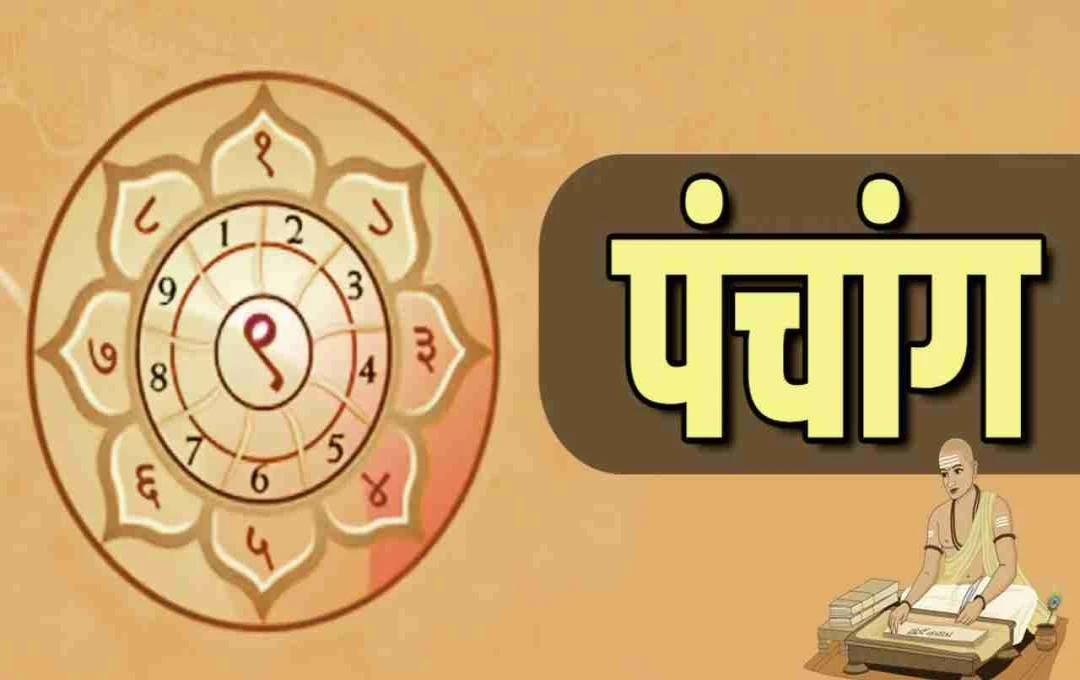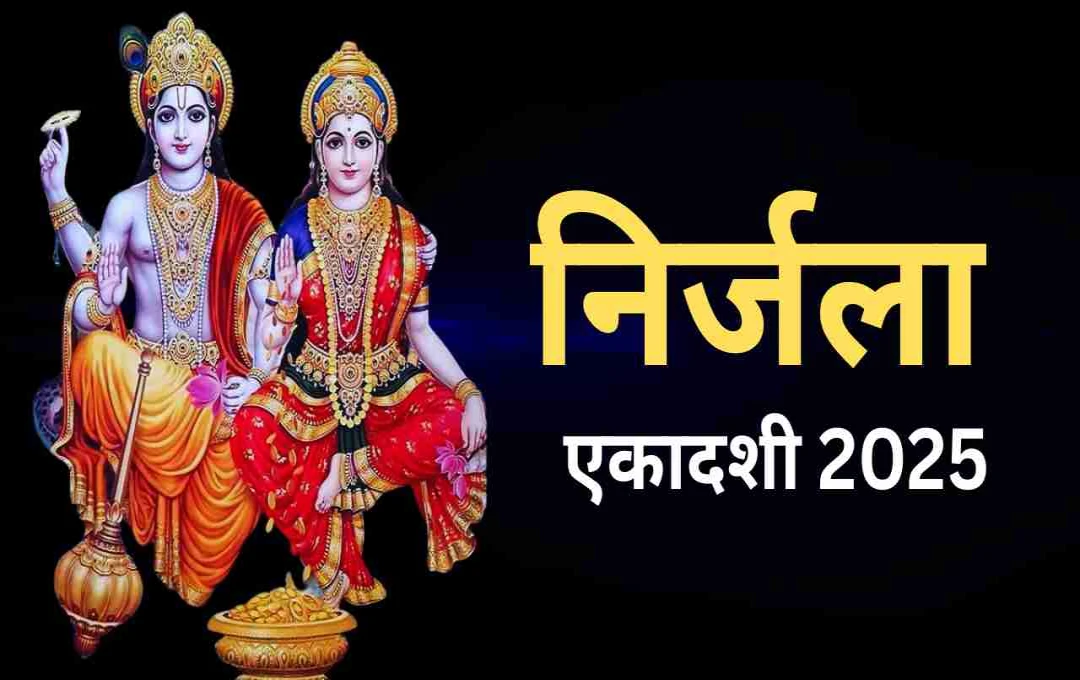Learn some special things of life told by Bhishma to Yudhishthira
The Mahabharata is considered a treasure trove of life lessons, with each event reflecting profound truths about human existence. According to the epic, as Bhishma lay on his bed of arrows, Yudhishthira sought his counsel, eager to understand the secrets of his long and healthy life. Bhishma then delivered invaluable teachings on Rajadharma (royal duty), Moksha Dharma (the path to liberation), and Apaddharma (duty in times of crisis), expanding on these concepts in detail. Guided by Krishna, he imparted these teachings with dharma in mind. These principles remain relevant even today. Let us explore the wisdom Bhishma shared with Yudhishthira.
Bhishma's Teachings in the Mahabharata
Control your mind.
Avoid arrogance.
Resist growing desires for worldly pleasures.
Do not retaliate even when hearing harsh words.
Remain calm and composed even when suffering harm.
Offer shelter to guests and the helpless.
Neither speak nor listen to the criticism of others.
Regularly study and listen to scriptures.
Do not sleep during the day.
Instead of seeking self-respect, show respect to others.
Do not be controlled by anger.
Eat for health, not just for taste.
Truth (Satya) is the highest dharma. 'Truth' is the eternal dharma. Austerity (Tap) and Yoga arise from truth. All other dharmas are encompassed by truth. Truth is Brahma (the ultimate reality), truth is austerity, and through truth, one attains heaven. Falsehood is like darkness; dwelling in darkness leads to downfall. Heaven is symbolized by light, and hell by darkness.
Speaking the truth, considering all beings equal, controlling the senses, remaining free from envy and malice, forgiveness, good character, modesty, not causing suffering to others, abstaining from wrongdoing, devotion to God, purity of mind, courage, and knowledge – these thirteen qualities constitute the characteristics of Satya Dharma. The Vedas preach truth. The fruit of truth is equivalent to thousands of Ashwamedha sacrifices.
Speak words that are pleasing to others. Slandering, criticizing, and using harsh language should be abandoned. Insulting others, ego, and arrogance are vices.
The pleasure derived from fulfilling desires in this world, and the pleasure obtained in the afterlife, is not even a sixteenth part of the happiness experienced by liberation from desires.
Death and immortality – both are within man's control. Attachment leads to death, and truth leads to immortality.
Old age has surrounded the world from all sides. Death is striking at it. Day passes, night passes. Why do you not awaken? Arise now. Do not waste time. Do something for your own welfare. Before your tasks are completed, death may seize you.
When a man withdraws his desires within himself, like a tortoise withdrawing its limbs, the light and greatness of the soul become apparent. A man who wants to control himself must be free from greed and attachment.
Voluntarily embracing a life of poverty is a source of happiness and well-being for man. It protects one from distress and prevents one from making enemies. This path is difficult, but easy for virtuous men. I have seen no one equal to a man whose life is pure and who possesses no other wealth. I placed such poverty on one scale of a balance and a kingdom on the other; the scale of poverty proved heavier. Wealthy men are always fearful, as if death has them in its jaws.
Nothing is achieved without renunciation. Perfection of the highest ideals is not possible without renunciation. Without renunciation, man cannot be free from fear. Through renunciation, man attains all kinds of happiness. Renouncing desires is superior to fulfilling them. To this day, which man has fulfilled all his desires? Go beyond these desires. Abandon attachment to material things. Attain peace of mind.
He is happy who keeps his mind in equilibrium, who does not worry unnecessarily, who speaks the truth, who is not caught in the attachment to worldly things, and who does not have a special effort to do any work. A man who unnecessarily torments himself destroys his form, color, wealth, life, and religion.
The man who remains free from sorrow obtains both happiness and health. Happiness comes to two types of men: those who are most foolish, and those who have seen the truth in the light of wisdom. Those who are suspended in between remain unhappy.
The mark of a noble and virtuous man is that he does not envy those who are wealthy. He respects the learned and listens to teachings from every source related to dharma. The man who controls his future (determines his own path, does not become a puppet of others), who can think and act promptly according to the circumstances, attains happiness. Laziness destroys man.
Do not eat alone. If you think of earning money, take someone along. Do not travel alone either. Do not stay awake alone where everyone else is asleep.
No dharma has been heard of that is equal to Dama (self-control). What is Dama? Forgiveness, patience, renunciation of enmity, equality, truthfulness, simplicity, restraint of the senses, diligence in action, gentle nature, modesty, b character, cheerfulness, contentment, speaking sweet words, not causing pain to anyone, not being envious – all these are included in Dama.
Renouncing desires is superior to fulfilling them. To this day, which man has fulfilled all his desires? Go beyond these desires. Abandon attachment to material things. Attain peace of mind.
We strive to bring you India's invaluable treasures, found in its literature, art, and stories, in simple language. For more such inspirational stories, keep reading subkuz.com








